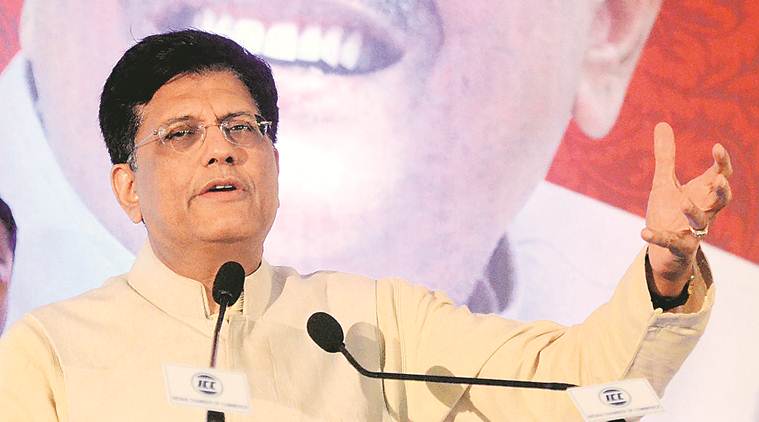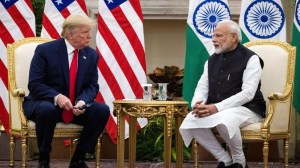Stay updated with the latest - Click here to follow us on Instagram
Railways: Bullet train load increases, told to get funds from market
While the Finance Ministry is learnt to have said that it will pay the principal, the Railways has communicated that it will not be able to bear the yearly interest and associated charges.
 In all, the Railways sought around Rs 18,000 crore from the Finance Ministry. (Express photo)
In all, the Railways sought around Rs 18,000 crore from the Finance Ministry. (Express photo)
THE Finance Ministry has asked the Indian Railways to borrow the funds required for the bullet train project from the market and not expect it as additional Gross Budgetary Support from the Budget.
The National High Speed Rail Corporation (NHSRCL) requires around Rs 10,000 crore this year mainly for land acquisition, part of the Government of India’s commitment towards the Rs 1.08 lakh crore mega project. Along with that, there is a commitment of around Rs 5,000 crore towards the Dedicated Freight Corridor project.
In all, the Railways sought around Rs 18,000 crore from the Finance Ministry. However, following multiple meetings between top bosses of the two ministries, the Railways has been told to look for ways to raise the capital from the market, to be repaid by the Finance Ministry later.
It is learnt that deliberations have also happened over who will service such a huge loan. While the Finance Ministry is learnt to have said that it will pay the principal, the Railways has communicated that it will not be able to bear the yearly interest and associated charges.
Borrowing the money at a high rate could also mean the Indian government’s cost of funding will escalate for a project which is billed to be “as good as free” owing to the inexpensive Japanese loan.
Already negotiating land-acquisition issues and court cases in the bullet train project, this is another unforeseen bump for the Railways, officials said. Currently, it is preparing a fresh proposal detailing the requirement and a possible way around the logjam.
“We have told the Finance ministry that we will not be able to bear the cost of the capital. We don’t have the money. It will have to be borne by the government, as is the understanding. We will go back with a fresh proposal by next month. We are working on it,” a top Railway Ministry official told The Sunday Express.
As per the shareholding pattern, the Government of India is to pay Rs 10,000 crore to the NHSRCL, while the two states involved, Gujarat and Maharashtra, are to pay Rs 5,000 crore each. The rest is to be paid by Japan through a loan at 0.1 per cent interest.
When contacted, a top Finance Ministry official said the bullet train project is being adequately funded. “There is no problem in the funding. The project is being funded by the Japanese authorities and the Government of India,” he said.
Finance Ministry officials also said that raising money from the market is part of the government’s ways of funding projects through various methods in an attempt to keep the fiscal deficit under check. For instance, last October, the government announced Rs 1.35 lakh crore of capital infusion in PSU banks through issuance of recapitalisation bonds, and not directly from the Budget. These bonds were issued by the government to banks and money so raised used to infuse capital in them.
One of the ways the Railways borrows money is through its financing arm, the Indian Railway Finance Corporation (IRFC). It has tapped into loan from the LIC for its various projects. But borrowing from the LIC for the bullet train will be a problem because as per rules set by the Railways, the LIC money can only be tapped into for remunerative projects which have a healthy financial rate of return. In strict finance terms, this is something the bullet train does not have since its financial rate of return is around 4 per cent only, while for any ordinary rail project to be financially viable, the return needs to be at least 12 per cent.
In the current year’s Budget, an amount of around Rs 1,800 crore has been earmarked for the bullet train project. “Grants earmarked in Budget get revised all the time. We do not need the money right away. The money is to be given to us by the government and we will get it when it is needed,” a top NHSCRL official said.







